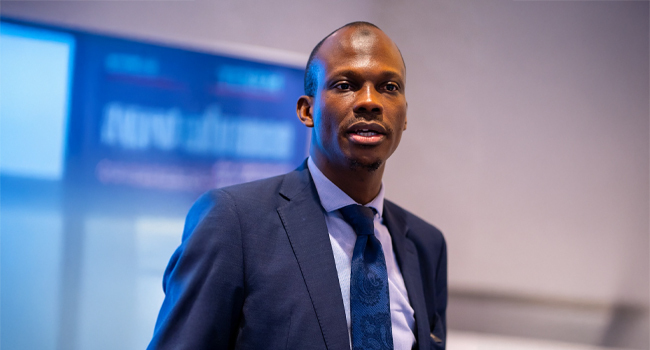As the decline continued to hit the Nation’s treasury due to dwindling global oil prices, terrorism, and global unrest. An interactive session with tax experts has shed light on the way out of the current quagmire.
Alhaji Mohammed Ahmed, Lecturer, Kano State University; Dr. Tanko Mohammed, Managing Partner of Tanko Tanko & Co: Dr Zakari Abdullahi Director, Gombe State Inland Revenue Service
Dr. Zakari, while speaking with Guardian Online about what Tax Technology means, he noted that tax Technology is the process of digitalizing tax functions. It entails the use of emerging technology to plan, execute, and implement tax operations. The landscape is changing just as the world is moving very quickly, and things are evolving.
“Tax technology helps to navigate and reshape the tax process, from data gathering to Tax filing & collection, Tax audit, and sustainable revenue generation”
While shedding light on the term sustainable revenue, Dr. Tanko, said “It means revenue growth at a set margin over a foreseeable period. Sustainable revenue ensures financial stability and allows proper project planning and execution.”
Speaking further, the Revenue Consultant talks to about his achievement to various Internal Revenue Service agencies in Nigeria, he also pointed out the relevance of what he described as the government investment in the adoption of tax technology.
According to him, “I would say that Government is trying, but they could do more, a lot is still needed in technology investment to various IRS. I understand that Investment in tax technology may be very expensive sometimes, but government needs to be intentional about it, I mean “very intentional”.
He said “Adoption of advanced tax technology would put the nation on the right track and minimize reliance on oil and the Revenue Allocation Mobilization and Fiscal Commission (RAMFC). I think this would make state governments to be independent and rely less on the federal government.
Alhaji Mohammed also explained how technology could facilitate tax compliance, saying “tax compliance is a very complicated issue affecting our revenue collection, and this can be resolved through extensive technology investment.” He pointed out that “For example, this innovation called “Cryptocurrency” is trending in Nigeria. Do you know that Nigeria account for the third largest cryptocurrency transaction globally queuing behind the United States of America and Russia in 2020. Some days ago, I came across an article written by Mr. Samuel Olabanji, titled “Technological tools in facilitating cryptocurrency tax compliance: An exploration of software and platforms supporting individual and business adherence to tax norms”. In that research, he dissected the role of technological tools in cryptocurrency tax compliance for taxpayers. In that article he recommended that implementing comprehensive tax software is indispensable and that such a platform would offer a streamlined approach to calculating tax liabilities, automating the process, and diminishing human error, because they allow for the importation of transaction data from various exchanges, automatically compute gains or losses, and generate tax reports, thus ensuring accuracy in tax filings. In that article, he also explained how investing in Artificial Intelligence (AI) would offer predictive analytics and pattern recognition to identifying tax evasion schemes and underreported transaction-driven tools, The deployment of platform & software tools would alleviate the complexity surrounding cryptocurrency tax compliance and assist taxpayers and tax authorities. I would also advise that you go and read it
Dr. Tanko was asked if Nigeria was prepared for the adoption of Artificial Intelligence in the current tax system, he said that every economy is unique, but the Nigeria system has witnessed innovation for years. “I would say that Nigeria is braced up to move with trend and AI is the new trend. We are prepared to adopt Artificial Intelligence, but Nigeria also needs to invest more in technology to reduce the negative impact of AI adoption. The Western Countries are getting it right and Nigeria would be left behind.”
You may also want to read my research work titled “The Adoption of Artificial Intelligence in Nigeria’s Tax System, the Way Forward”. In that research, we collected samples from various taxpayers in Nigeria, understanding thinking about AI adoptions, and a lot of them are scared about privacy concerns. Some agreed that AI-driven methods would significantly improve threat, and fraud detection, but the security and privacy concern is a big issue.”
So, we recommended that a gradual AI migration be adopted, which means that Nigeria should gradually implement the AI technology initiative into the system because our economy is not fully prepared now. Just like my friend, Alhaji mentioned, I have also read Mr Olabanji’s article on “Technological tools in facilitating cryptocurrency tax compliance: An exploration of software and platforms supporting individual and business adherence to tax norms, his recommendations are very great, Nigeria Tax system a secured software and platforms to ensure credibility and security of individual and business taxpayer information. Nigeria needs crypto tax revenue because you will agree that cryptocurrencies are backed with stablecoins valued in United States currency (USD), this explains that cryptocurrency taxation will generate a large influx of foreign currency into the Nigerian system which would help minimize the current FX issued faced by Nigeria underscoring the need for Nigeria to invest in tax technology including AI to maximize revenue
Alhaji. Mohammed also spoke about the AI adoption in Nigeria; “Look, Artificial Intelligence is the future that would apply to almost everything. Cryptocurrency and tax revenue enhancement would be made easy with the help of AI. So, yes, Nigeria needs to do more to embrace emerging technologies including Artificial Intelligence. To resolve the issue of FX shortage in the country, we need to embrace emerging technology. I am happy about the steps Nigeria is taking by creating laws and frameworks to regulate cryptocurrency activities, this would help to harness the cryptocurrency potential because Nigeria cannot be left behind in the emerging technology campaign”, he added.






